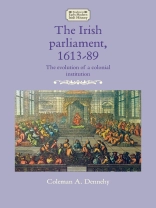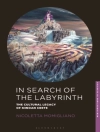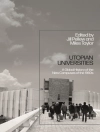The Irish parliament was both the scene of frequent political battles and an important administrative and legal element of the state machinery of early modern Ireland. This institutional study looks at how parliament dispatched its business on a day-to-day basis. It takes in major areas of responsibility such as creating law, delivering justice, conversing with the executive and administering parliamentary privilege. Its ultimate aim is to present the Irish parliament as one of many such representative assemblies emerging from the feudal state and into the modern world, with a changing set of responsibilities that would inevitably transform the institution and how it saw both itself and the other political assemblies of the day.
Table of Content
List of tables
Abbreviations
1 Introduction
2 Petitions and the administration of justice
3 Making law: bills and acts
4 Officers and servants of parliament
5 Privilege, precedent, and self-regulation
6 Conclusion
Index
About the author
Micheál Ó Siochrú is Associate Professor of History at Trinity College, Dublin












